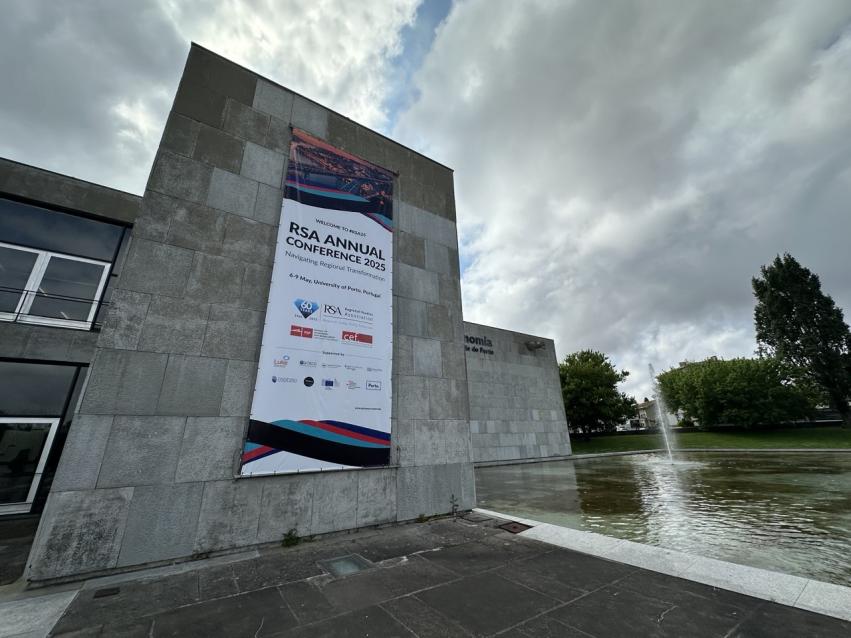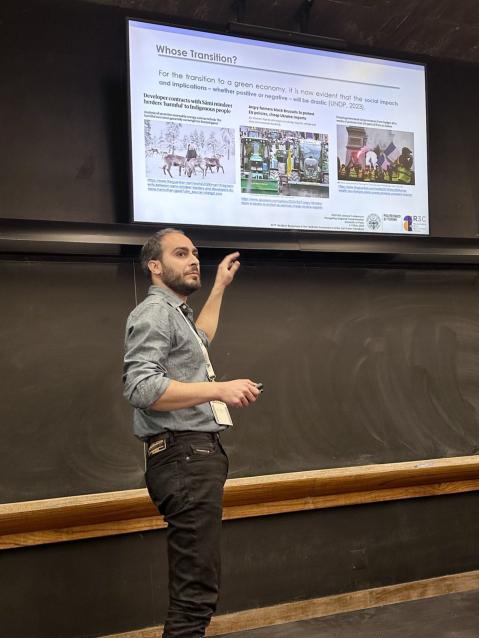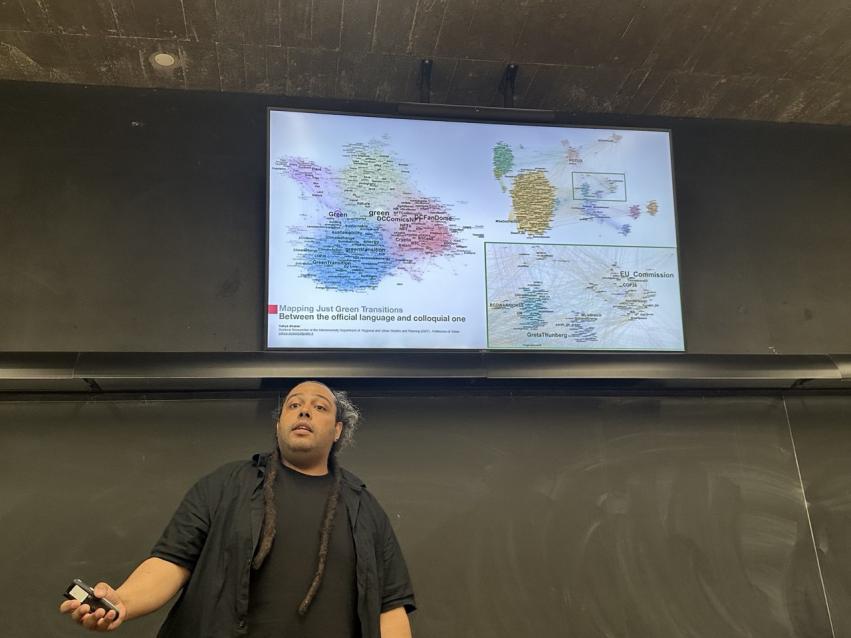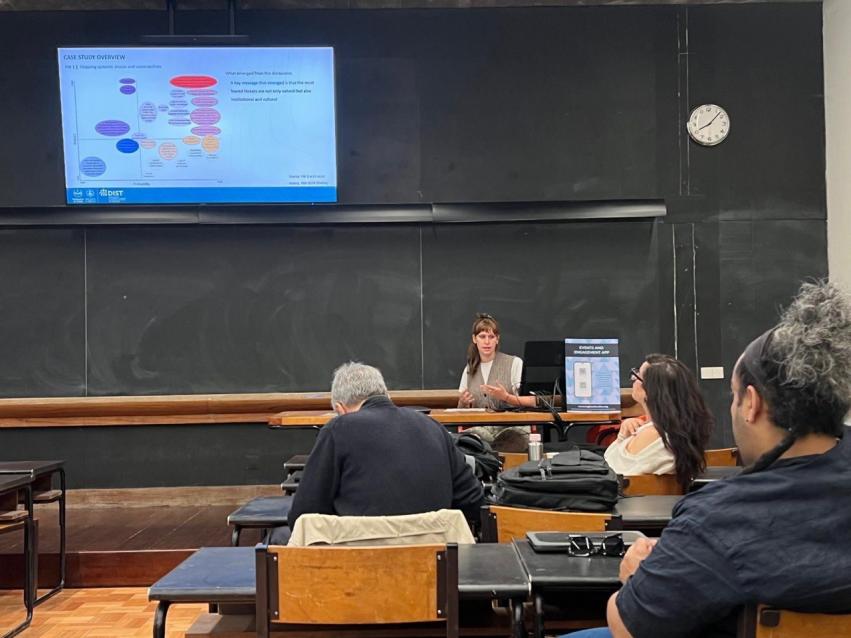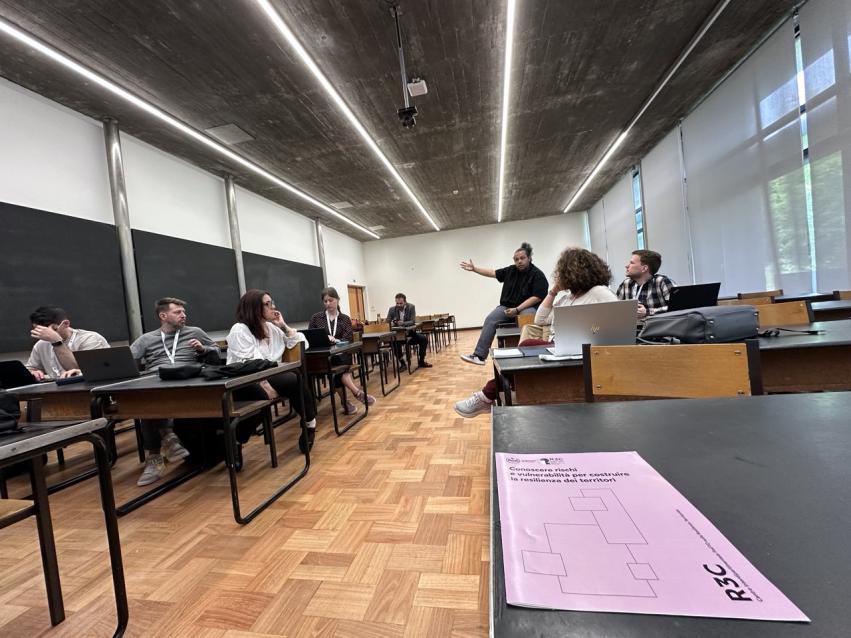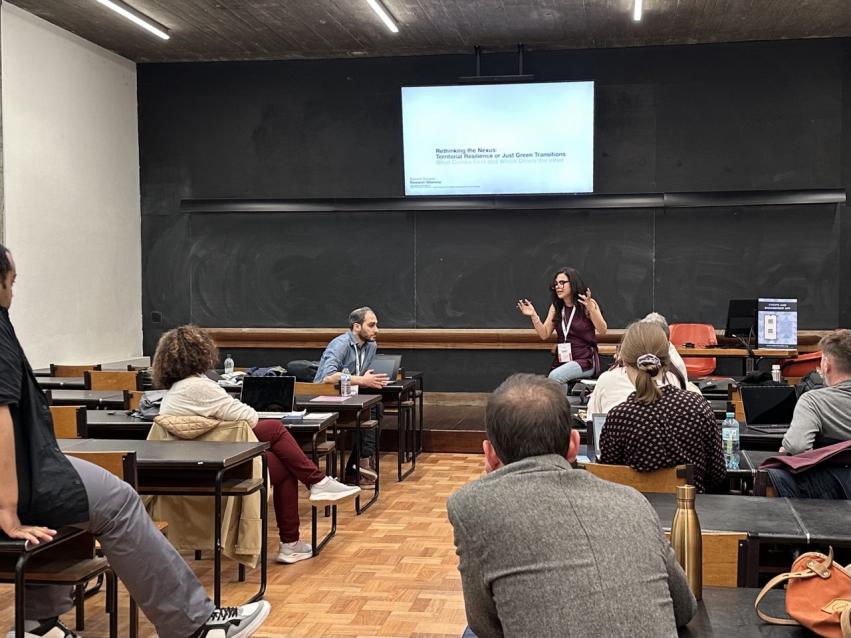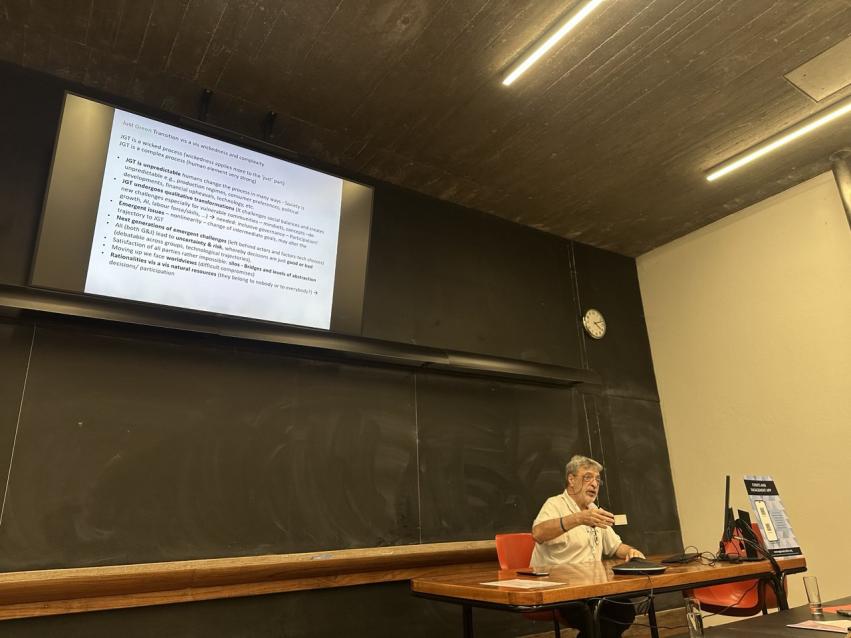R3C at 2025 RSA Annual Conference - Navigating Regional Transformation
Last week, R3C had the opportunity to contribute to a vibrant and thought-provoking session exploring the challenges and potential of territorial governance in shaping just green transitions, with a particular focus on resilient processes.
The presentations and discussions addressed several critical themes, including the following key questions: Why do green transition policies sometimes encounter resistance? Who often bears the costs? Who frequently reaps the benefits? How should resilience be framed in this context? And what attributes of governance can support the transition?
We argued that resilience must be reconceptualised, not only to address the unintended consequences of green transition policies but also to actively support the deep structural changes these transitions require.
Central to our discussion was the role of governance in crafting resilience pathways that place equity at their core. We emphasised that the complexity and wickedness of both resilience and the green transition demand more than superficial policy fixes. Social equity, as a dynamic and contested value, must be negotiated throughout the transition process rather than assumed as a given.
The discussions were particularly valuable in challenging assumptions that are often treated as settled facts. Conceptualisation is not a trivial task; it is a critical act. As researchers, we are called to question dominant frameworks, construct alternative paradigms, and defend valuable ideas within policy discourse.
2025 RSA Annual Conference
Navigating Regional Transformation
University of Porto
6 May 2025
Special Session (SS79): "Resilient Responses in the Territorial Governance of the Just Green Transitions" to rethink the nexus: Territorial Resilience or Just Green Transitions: What Comes First and Which Drives the Other
Chair: Yahya Shaker, Politecnico di Torino, Italy; Ersi Zafeiriou, Dresden Leibniz Graduate School (DLGS), Leibniz Institute for Ecological Urban and Regional Planning (IOER), Germany
A Qualitative Comparative Analysis on the Governance of the EU Just Green Transitions
Yahya Shaker, Interuniversity Department of Regional and Urban Studies and Planning (DIST) - Politecnico di Torino
Integrating Social Inclusion and Equity into Resilience-Oriented Governance: Balancing Stability and Flexibility for Just and Green Transitions in the EU
Grazia Brunetta, Danial Mohabat Doost, Responsible Risk Resilience Centre - R3C; Interuniversity Department of Regional and Urban Studies and Planning (DIST) - Politecnico di Torino
Why (or to what Extent) Just Green Transition (JGT) is a Complex and Wicked Problem?
Pantelis Skayannis, University of Thessaly
Between National Trends and Local Realities: Spatializing Energy Vulnerability in 16 EU Countries
Jonas Lieth, GESIS - Leibniz Institute for the Social Sciences
Reframing Spatial Planning's Resilient Responses to Climate Change by Addressing Social Vulnerability
Ersi Zafeiriou, Dresden Leibniz Graduate School (DLGS), Institute for Ecological Urban & Regional Development (IÖR)
Building Territorial Resilience: Lessons from the Central Italy Earthquake Crater
Martina Caputo, Responsible Risk Resilience Centre - R3C; Interuniversity Department of Regional and Urban Studies and Planning (DIST) - Politecnico di Torino
Geo-data Driven Assessment Model for Small Towns’ Climate Positive Urban Transformation
Hanna Obracht-Prondzynska, University of Gdansk

